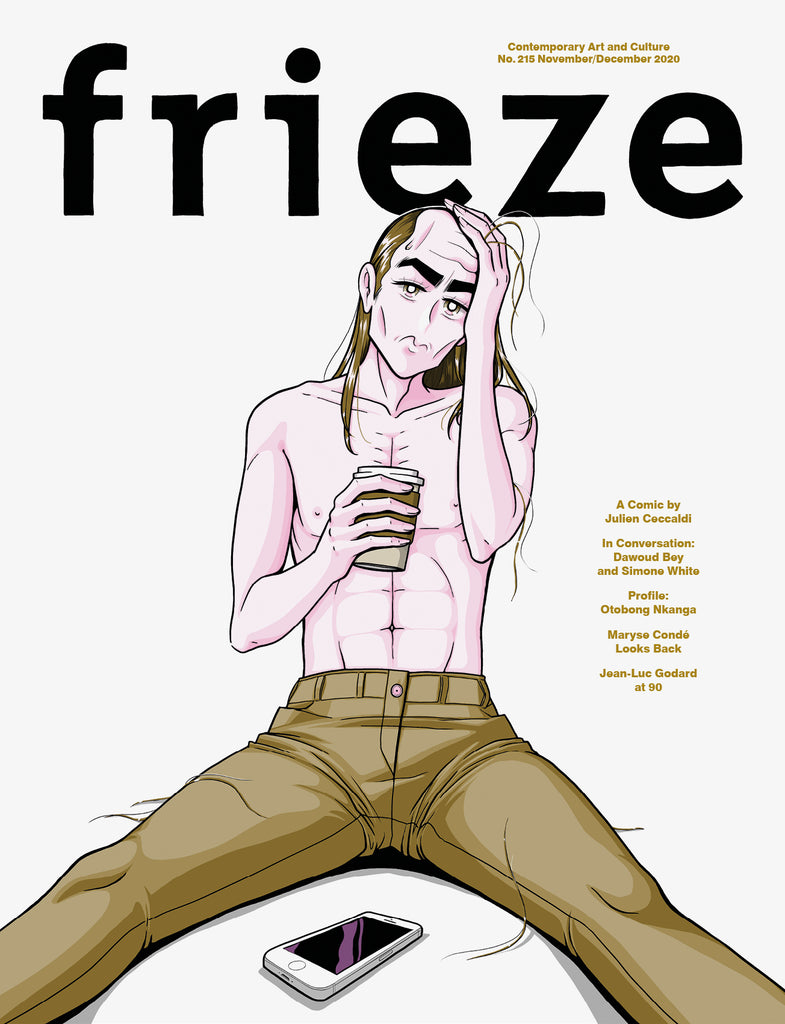
Issue 215
‘A powerful way to think about the present is to see it as the culmination of all that has come before it.’ – Skye Arundhati Thomas
In the November issue of frieze, Skye Arundhati Thomas profiles the artist Otobong Nkanga; John Kelsey examines the late style of the film director Jean-Luc Godard; and Basel Abbas and Ruanne Abou-Rahme answer our questionnaire.
Profile: Skye Arundhati Thomas on Otobong Nkanga
‘Material is archive, memory and also monument.’ Otobong Nkanga’s excavation of material histories has taken her from Nigeria to Namibia and back. Her work – currently on view in solo exhibitions at Gropius Bau, Henie Onstad Kunstsenter and Middlesbrough Institute of Modern Art – pulls tragedy from landscape.
Essay: Jean-Luc Godard at 90
‘In Jean-Luc Godard’s late films, we witness a mutation of the medium from within its own processes, as a living history tries to reveal itself amongst the fresh ruins of cinema.’ John Kelsey rewatches the filmmaker’s most recent works – Film Socialisme (2010), Goodbye to Language (2014) and The Image Book (2018) – which define the iconic auteur’s cranky late style.
Also featuring:
A conversation between Simone White and photographer Dawoud Bey; 1,500 words by Shiv Kotecha on thinking through Bollywood’s class consciousness from the vantage of the Indian diaspora; nine artists – including Korakrit Arunanondchai, Lubaina Himid and Christodoulos Panayiotou – nominate a colleague whose work has been on their mind; and Philipp Ekardt responds to Isa Genzken’s Schauspieler III, 3 (2015)
Columns: Camouflage
Maryse Condé recalls her first encounter with Frantz Fanon’s Black Skin, White Masks (1952); Denise Ferreira da Silva on vulnerability, precarity and the necessity of opacity; Stephanie Syjuco on Ruth Asawa’s time in the Rohwer War Relocation Centre; Heba Y. Amin and Anthony Downey examine how pilotless aerial drones have reshaped the psychogeography of the Middle East; and a specially commissioned comic by Julien Ceccaldi, who has also designed our cover.




